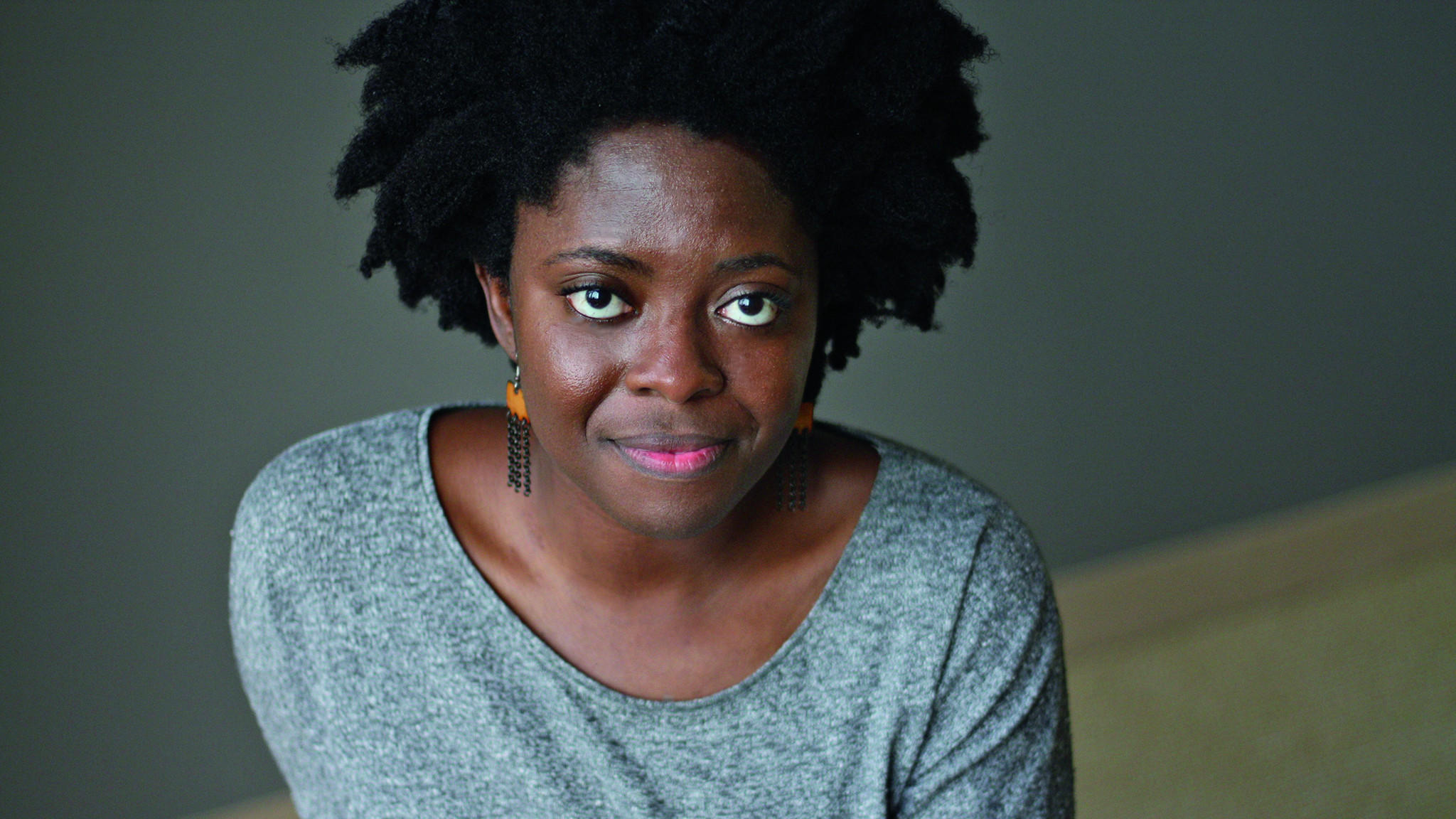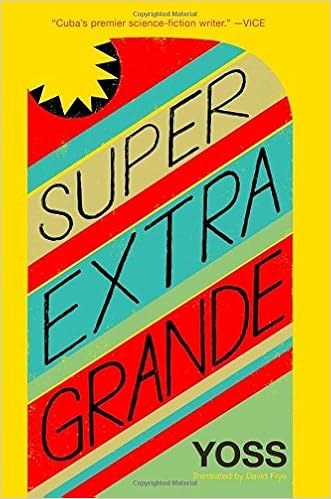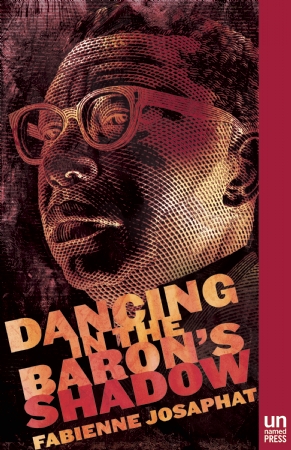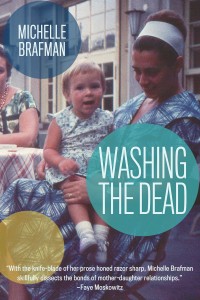 BY ASHLEY M. JONES
BY ASHLEY M. JONES
—
Yaa Gyasi’s explosive debut novel, Homegoing, has earned national acclaim, and for good reason–this book is masterful in its craft, powerful in its message, and maybe greater than all of that, it explores mostly every side of the African Diaspora from the slave trade (including African involvement in the acquisition and movement of slaves, which is something I don’t see often in literature on the subject, and Gyasi manages to do this without feeding into the warped narrative that because some Africans were involved in slavery, it is somehow made “okay” or above critique by modern Black thinkers), to wrongful imprisonment to funnel black workers into coal mines and other industries, to modern descendants of this family who finally return home, even if they don’t exactly know what that “home” really means.
I devoured this book greedily, and although this book has garnered comparison to Roots, it is a fresh story, a new voice, and another necessary genealogical journey that is taking its place in literary history.
I was lucky enough to talk to Yaa (YG) recently about her new book, the writing process, and the place of politics in literature. See the interview below:

AMJ: I’d like to start off by congratulating you on your success with HOMEGOING—a debut is a tricky thing, I know. Can you talk about the process of writing this book? Did you know it was a hit?
YG: I got a grant in 2009 from Stanford to travel to Ghana to conduct research for a novel, and I had kind of a different idea in mind. I wanted to write something about mothers and daughters, and I wanted to visit the area that my mother is from—the central region. But as soon as I got there, I kind of knew it wasn’t going to pan out. A friend and I decided to visit the Cape Coast Castle, and so I visited the castle, I took the tour, and the tour guide started to mention how there were soldiers who lived and worked in the castle who sometimes married the local women, which was something I had never heard before. And then they took us down into the dungeons. And that was really kind of the genesis of this project for me.
I kind of immediately felt haunted by the material, and I knew that I wanted to write about it. And I kind of took a circuitous route—in the beginning I’d wanted to write something that was set in the present, in present-day America, and then just flash back to Ghana in the 18th century, so you could kind of see what slavery had left us now, but then I realized that over time I was actually more interested in being able to watch things move as they changed kind of subtly over this long period of time. Once I realized that, I changed the structure to the one that you see now, one that would allow me to stop in as many decades along the way as possible. And so I wrote the first two chapters when I got to Iowa in 2012, and they’re pretty similar to the way they appear in the book now, so those felt like really urgent and different than anything I’d ever done before in a really good way. And from there, I made a family tree that I put up on my wall that looks a lot like the one at the beginning of the book, but mine also included the dates during which the bulk of the chapter would take place, and also one thing was going on in the background, politically or historically during the time period, so the Yaa Asantewaa War, the beginning of cocoa farming in Ghana, something like that. And then, I wrote chronologically, and I stopped at the beginning of each chapter to do a little research on whatever it was that I had written. So I would grab a book like Black Prisoners and Their World, before starting a chapter, and I read as much as I could, enough to make me feel like I was in the world. And after that, I closed the research book and let my imagination take over, because I didn’t want it to be all stifled by research.
And that’s kind of how I worked. And I wasn’t sure—I said before that I felt like it was different than anything I’d ever written, and it’s hard to tell, it’s hard to be objective about your work in that way. But I have a great reader, she’s been reading my work since my freshman year of college, and I remember sending her the first two chapters, like right after I had written them, and she emailed me back, “this is the best thing you’ve ever written, keep going.” So that was kind of my clue that I had landed on something that I wanted to explore further.
AMJ: You sort of answered this in the first response, but I’ll ask again: as far as your research, how many books did you have to read? What was that process like?
YG: I read quite a few books—I listed a few of them in the back, and those are just the ones that I feel like I used pretty heavily. I was worried about—sometimes I read a historical novel and I feel like it was just an opportunity for the writer to tell you everything that they learned about the history in that time period, and you kind of lose the character and the story and those kinds of things that make me want to read fiction in the first place rather than reading a historical text. And so I didn’t want this book to feel that way, I felt like if I ever came to this crossroads where I have to decide between the plot and historical fact that I was going to choose plot—that was kind of how I approached this.
And so, again, my process was just that I would research at the very beginning of each chapter and then I would close the book and just write. If there were things that I came upon that I needed to do more research on then I would make a note of it, so that after I finished the first draft I could go back and look through my notes and try to research things a little more clearly than I had before to get simple answers. Like, what kind of mallet would he have been holding? Those are things that are less fun to research but still kind of necessary.
AMJ: Some people are calling Homegoing this generation’s Roots. Does that seem accurate to you? Do you welcome the comparison?
YG: I never read Roots and I never saw the miniseries. And I haven’t watched the re-make, either, though I’ve been meaning to. I kind of knew that was a comparison that was going to be made just because of the nature of this book kind of being a genealogical look at a black family. [Roots is] pretty much the original book that deals with that. I totally understand the comparison in that way, but I did want to be careful to not feel as though I was having to answer to Roots as I was writing, and so I kind of made the choice to not read it. So now I would love to—to sort of get in on that conversation because I haven’t had the best answer to that question after the book came out. But it is interesting to hear other people talk about it. And Roots came out in the 70s and there’s been a lot of changes since then. So it’s nice to have this book come out and see the ways in which the conversation has changed since Roots came out.
AMJ: I definitely see the reason for the comparison, too—although I didn’t think about Roots while I read Homegoing, I definitely think they’re doing something similar for the world. Roots was important to past generations (and present, as most Black kids I know were forced to watch with their parents), and Homegoing, I think, can do something similar for this generation.
The form of the book is particularly striking to me—I don’t think I’ve ever seen a book (and this could be because I’m just not reading enough novels) whose story is told entirely through different characters the whole way through without compromising a single plot point. How did you decide to use this form, and was it hard to keep it all so chronological and tight?
YG: I was thinking about ways to do it. I read One Hundred Years of Solitude and I adore that book, I think [Marquez] is a genius and I also kind of quickly knew that I wasn’t going to be able to write a book like that. It just seems too hard. And I thought that the structure would allow me to keep things as simple as possible while letting everything else be big and messy.
I think I’d read other books that kind of have this multiple points of view or long period of time and a lot of those books cover far fewer years than this book does. Or, if it’s about family, there are fewer members of the family, just ways to allow you to come back to a central character. And so I was nervous about trying this, because I knew that it was going to cover too many years to allow me to do that in a realism way. I don’t know, it’s just one of those things—I wouldn’t’ know if it was going to work until I finished the first draft. Not the best position to be in as a writer—working on something that might not gel, but I felt like, in terms of things I didn’t want to compromise on, I thought, the length of time that this book covers was one of them. I really wanted to go from 18th century Ghana to present-day America and how I was going to get there—I wasn’t quite sure, but I was going to try this structure, finish the first draft, read it over, and see if it made any sense.
AMJ: I think Homegoing has some political aspects, even if it might not be immediately apparent, that work is at play in the novel. Some have said that literature and politics don’t mix, others say that artists are the true “reporters” of the times in which they live. Maybe this is mostly said about poetry, but I’m wondering, even as a fiction writer, do you think the writer/artist has a political responsibility? Can/should politics and art coexist?
YG: So many of the writers that I admire are writers who very overtly talk about politics or history. Writers like Toni Morrison or James Baldwin. It’s a part of who they are and it’s a part of their literature and I couldn’t ever have imagined being the kind of writer who didn’t write about anything. And I also don’t believe that that kind of writer exists.
I think a lot of white male writers get to believe that they are writing these neutral stories, but when I read them I feel the politics in them. The politics of exclusion, or the politics of white supremacy or whatever it is. So I just don’t believe that we’re capable of writing something that is divorced from history or divorced from politics.
The fact that this book feels overtly political, I think that’s something about the place that we are in. But, I think that it is something that I knew that I had to do and wanted to do and I didn’t want to shy away from including that. And, a lot of the books that I love don’t shy away from including that.
AMJ: We’re both raised in Alabama—I’m born and raised in Birmingham, and you grew up in Huntsville (by way of Ghana). Did your experience as a southerner impact your decision to write this book? Do you feel like you’re putting Alabama on the literary map in a new way?
YG: I don’t know if I identify as a southerner. I was born in Ghana, then I lived in Ohio, Illinois, Tennessee, and then Alabama. I kind of moved around a lot, and in a lot of ways, I think that this book reflects that kind of restlessness of place that I tend to have.
But, at the same time, Alabama was the most formative place in my life. It’s still the place that I think of as home, it’s where my family is, it’s where my little brother spent all of his life, and so my relationship to Alabama is really important to me, and I don’t think that I could have written a book like this if I hadn’t grown up in Alabama.
I came from a country that had involvement in the slave trade, then I end up in a place where the effects of slavery are still so strongly felt, and it’s something that wasn’t lost on me, and it’s something that I was sort of unconsciously navigating my entire childhood, going home to Ghanaian parents and being told all the ways that I wasn’t African American, then leaving my house and being African American to the rest of the world, and trying to figure out what that meant for me ,and what that meant for my brothers. And all of that is in this book—questions of identity, questions of identity as it pertains to ethnicity and race and country and all of those things are in here. I think if I hadn’t grown up in Alabama, I don’t know that I would have had the same kinds of questions.
AMJ: What new projects are you working on?
YG: I started another novel. I like to have something that I’m working on when another thing that I’m working on frustrates me, so I started it kind of a long time ago. But it’s still in the very early stages. It’s set in the present, it feels pretty different than this one. But, I think I’m starting to realize that with every project it’s going to be really different and I’m going to have to relearn how to do this work every time, and that’s where I am with it.
—
Yaa Gyasi is a graduate of the Iowa Writers’ Workshop, Yaa Gyasi was born in Ghana and raised in Huntsville, AL. Homegoing (Knopf) is available for purchase now.
Ashley M. Jones received an MFA from Florida International University. She was a 2015 Rona Jaffe Foundation Writer’s Award Recipient. Her debut collection, Magic City Gospel, is forthcoming from Hub City Press.

![[PANK]](https://pankmagazine.com/wp-content/themes/pank/assets/images/pank-logo-large.png)


 BY ASHLEY M. JONES
BY ASHLEY M. JONES




